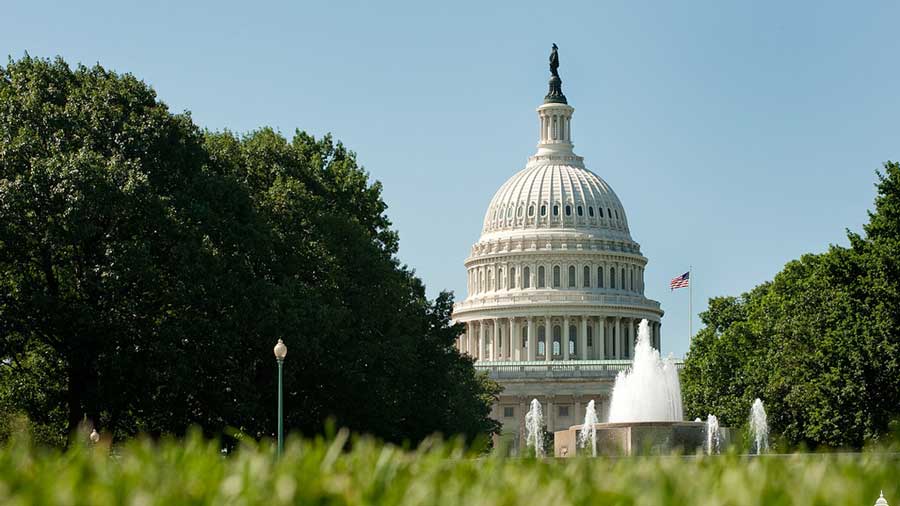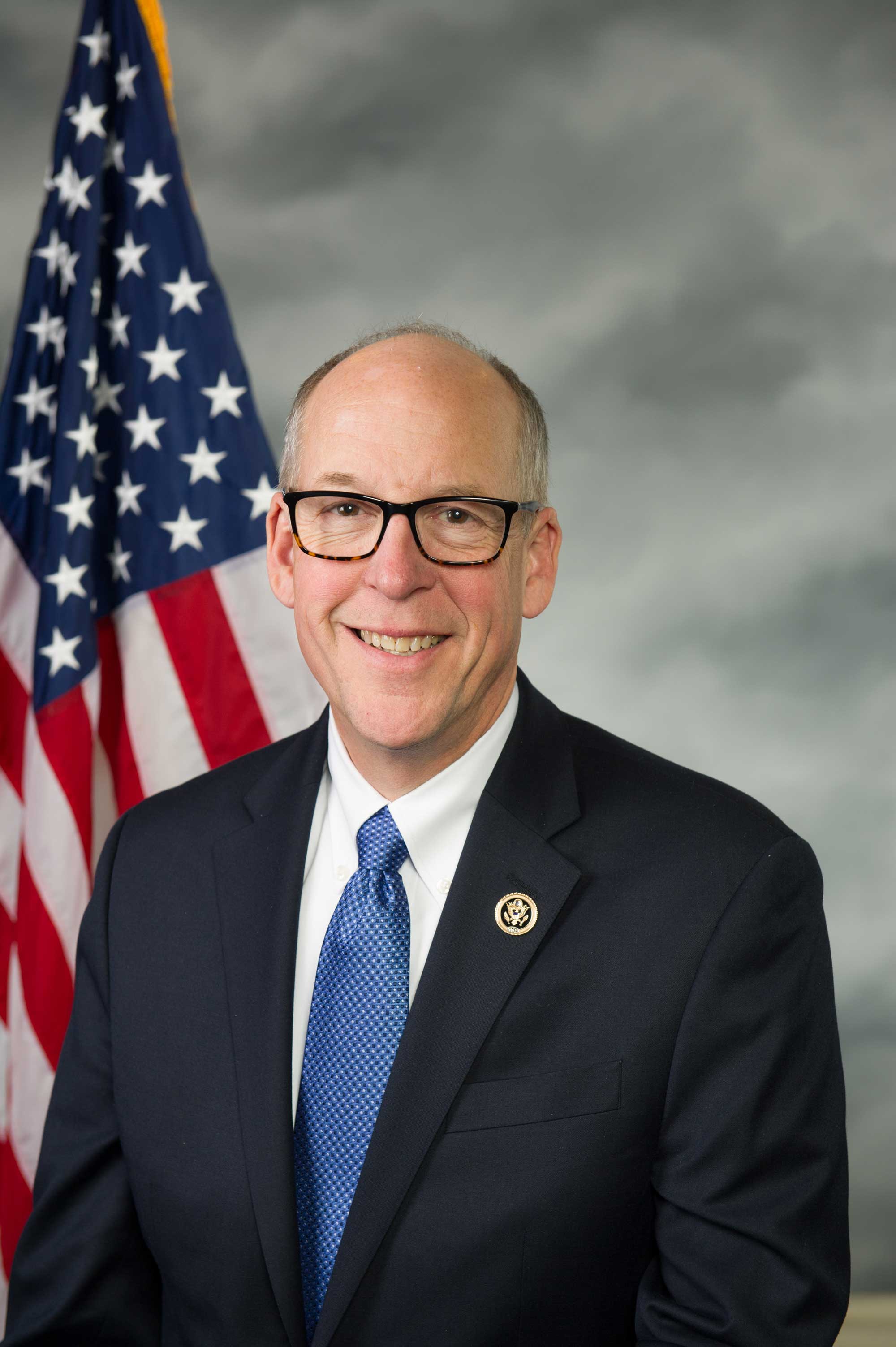House Looks to Lock Up 5G Security

The smarter way to stay on top of broadcasting and cable industry. Sign up below
You are now subscribed
Your newsletter sign-up was successful
The House Communications Subcommittee considered a handful of bills Friday (Sept. 27) the thrust of which were to protect 5G networks from foreign intruders looking to spy on the U.S., as well as to efficiently manage spectrum.
Those bills include the Secure and Trusted Communications Networks Act, which would prohibit spending federal dollars on suspect communications equipment, an issue that has been in the spotlight given concerns about Chinese telecoms.
It would require the FCC to come up with a list of untrusted suppliers of equipment and services, and fund the removal and replacement of that tech. Committee chairman Mike Doyle (D-Pa.) said that telecom service "is far too essential for any of our nation's carriers to be using untrusted elements in their network."
The FCC is separately working hard--according to FCC chair Ajit Pai this week--on an item that would prevent broadband subsidy dollars to be spent on suspect tech, including from Chinese telecoms Huawei and ZTE.
FCC commissioner Geoffrey Starks has called on Congress to find the funds to help out smaller operators impacted by the mandate.

"As we have heard, much of the global supply chain for telecommunications equipment flows through China at one point or another," said House Energy & Commerce chairman Frank Pallone (D-N.J.), "and Chinese industrial policies allow state-run manufacturers like Huawei to sell suspect equipment to American providers cheaper than nearly anyone else. Although many of the bigger carriers have avoided these threats, it still is a significant issue for smaller and more rural carriers who built their networks using suspect equipment."
One big issue Congress is wrestling with is how to "rip and replace"--or preferably replace first, then rip, said witness John Nettles with Pine Belt Wireless--the tech in those smaller systems, which includes hardware and software.
The smarter way to stay on top of broadcasting and cable industry. Sign up below
Bills being considered at the hearing were:
H.R. 4462, the "Studying How to Harness Airwave Resources Efficiently Act of 2019"
H.R. 4459, the "Secure and Trusted Communications Networks Act of 2019"
H.R. 4461, the "Network Security Information Sharing Act of 2019"
H.R. 2063, the "Eliminate From Regulators Opportunities to Nationalize The Internet in Every Respect [E-FRONTIER] Act"
H.R. 2881, the "Secure 5G and Beyond Act of 2019"
H.R. 4500, the "Promoting United States Wireless Leadership Act of 2019"
H. Res. 575, expressing the sense of the House of Representatives that all stakeholders in the deployment of 5G communications infrastructure should carefully consider and adhere to the recommendations of "The Prague Proposals" [5G security recommendations]
Harold Feld, SVP of public knowledge, had some modifications for the Secure and Trusted Communications Networks Act, including not limiting reimbursement to equipment purchased before August 2018, "especially if new providers are added to the covered list."
Public Knowledge opposes the E-FRONTIER Act altogether. That bill was prompted by reports the Trump Administration was at one time considering nationalizing a 5G network for security purposes.
"The Federal Government cannot build a new network without an appropriation from Congress,"Feld said. "This provides more than adequate protection in the event that a future administration should ever seek to move beyond consideration of a national network," he said. On the other hand, he said, language in that bill would potentially prohibit any sort of public/private partnership, spectrum sharing agreement, or emergency provision of services."
Rep. Jerry McNerney (D-Calif.) pointed out that a big problem with suspect tech is that the cheapest equipment, which smaller operators have tended to buy, has the least security. Feld agreed.
Nettles, who has some ZTE equipment, said smaller carriers would definitely need financial assistance to replace suspect tech.
"When it is determined that equipment previously purchased with government assistance, for the purpose of meeting established public policy objectives using mandated lowest possible cost methodologies, must be removed and replaced for national security reasons due to certain vulnerabilities unknown at the time of purchase, additional assistance is both in order and necessary, particularly for smaller and rural carriers that lack economies of scale."

Asked by House Energy & Commerce ranking member Greg Walden (R-Ore.) whether the retrofit could threaten 911 access he he were the only provider, Nettles said definitely, especially if they had to rip before they replaced. He said that would be like selling a car before buying a new one.
Walden, who represents a rural district, was clear he felt smaller operators should not be punished for the low-cost insecure tech they had used to provide service, particularly in cases where government subsidies were handed out to the lowest bidder.
He said the U.S.'s adversaries have no reservations about subsidizing their "pet" companies so they become attractive options for "budget sensitive" providers. "I have seen how broadband providers in my own state are trying to make a go of deploying broadband networks and stretching limited funds" to connect with constituents in hard-to-reach places, he said.
Walden said many of those providers don't have an army of consultants to help them stay abreast of vulnerabilities and avoid the suspect tech. "For those who receive federal support to build out broadband networks in unserved areas," he said, like many providers in his district. "[W]e cannot set them up for failure by requiring them to select the lowest cost equipment option, only for Uncle Sam to say later: 'Oh. by the way, not that lowest cost equipment.' We need to get this right.
Nettles agreed, but also signaled he and his company were encouraged by Congress' interest in the issue. "We greatly appreciate this Subcommittee’s work to provide certainty to all carriers regarding what equipment can and cannot be used and, of equal importance, to provide desperately needed resources to allow carriers like Pine Belt to take the steps necessary to secure our networks."
But another problem is that virtually all of the network equipment suppliers are foreign companies, so it becomes a challenge to figure out who to go to for replacement tech, pointed out Rep. Marc Veasey (D-Texas). Nettles said that was definitely an issue, but depended on what tech they would have to replace. He said there were some niche vendors, but that would add a level of complexity in terms of equipment working together that makes it almost unmanageable.
Contributing editor John Eggerton has been an editor and/or writer on media regulation, legislation and policy for over four decades, including covering the FCC, FTC, Congress, the major media trade associations, and the federal courts. In addition to Multichannel News and Broadcasting + Cable, his work has appeared in Radio World, TV Technology, TV Fax, This Week in Consumer Electronics, Variety and the Encyclopedia Britannica.

